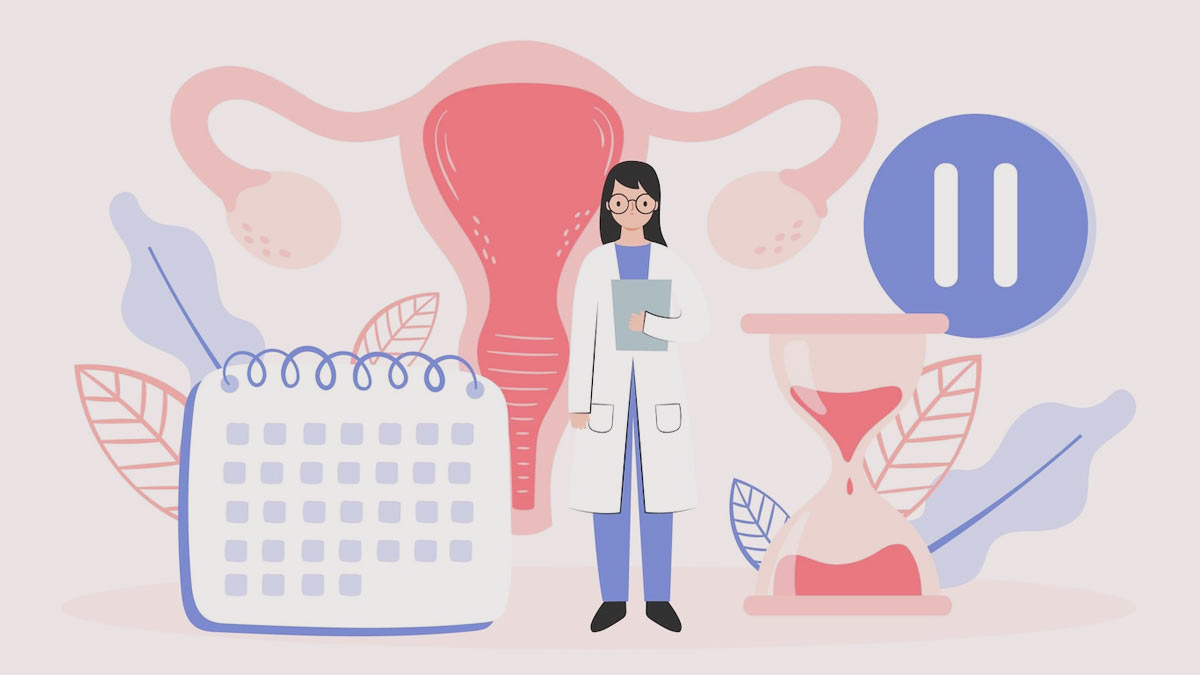
Polycystic Ovary Syndrome (PCOS) is one of the most common hormonal disorders affecting women today, yet it often goes undiagnosed for years. According to global estimates, nearly 1 in 5 women of reproductive age may have PCOS, but many don’t realize it until they face difficulties with weight management, skin health, or fertility.
Table of Content:-
So, is there a way to spot PCOS early? Health expert, Dr Himani Sharma, Senior Consultant in Obstetrics, Gynaecology, and Robotic Surgery, Apollo Hospitals Navi Mumbai, said yes, your body often gives subtle warning signs long before a diagnosis. Recognising these symptoms early can help you manage the condition better and prevent long-term complications like diabetes, infertility, or cardiovascular issues.
Early Warning Symptoms Of PCOS Women Can Watch Out For
Here’s a closer look at the early warning symptoms of PCOS that women should watch out for:
1. Irregular Periods or Missed Cycles
One of the most common early signs of PCOS is menstrual irregularity. This could mean:
Fewer than 9 periods in a year
Extremely heavy or scanty periods
Periods that come unpredictably
These irregularities happen because PCOS disrupts the normal ovulation process. If you frequently skip periods or experience unusually long gaps between cycles, it’s worth discussing this with a gynecologist.
Also Read: Eat Smart: Everyday Foods to Improve Memory and Focus

2. Persistent Acne and Oily Skin
While acne is common during puberty, adult acne that refuses to go away, especially along the jawline, chin, or lower cheeks, could be an early sign of PCOS. Hormonal imbalances in PCOS increase androgen (male hormone) levels, which stimulate the oil glands and trigger breakouts.
3. Unexplained Weight Gain or Difficulty Losing Weight
Many women with PCOS struggle with stubborn weight gain, especially around the abdomen. Even with regular diet and exercise, weight loss can be difficult because of insulin resistance, a key underlying issue in PCOS.
4. Unwanted Hair Growth (Hirsutism)
PCOS can cause excessive hair growth on the face, chest, stomach, or back, thanks to elevated androgen levels. This is often one of the first cosmetic changes women notice but may hesitate to report.
5. Thinning Hair or Hair Loss
While some areas experience excessive hair growth, PCOS may cause hair thinning or male-pattern baldness on the scalp, particularly near the crown or hairline.
6. Mood Swings, Anxiety, or Depression
PCOS doesn’t just affect your physical health, it can take a toll on your mental well-being too. Studies have shown a higher prevalence of mood swings, anxiety, and depressive symptoms in women with PCOS, sometimes even before other signs become obvious.
7. Dark Patches on Skin (Acanthosis Nigricans)
If you notice dark, velvety patches of skin on the neck, underarms, or groin, it could be an early sign of insulin resistance related to PCOS. These patches are not harmful but serve as an important warning signal.

Why Early Detection Matters
Early recognition of these symptoms allows women to take action through lifestyle changes, medical management, and regular monitoring. Ignoring the signs can lead to complications like:
Type 2 diabetes
Infertility
Endometrial cancer risk due to prolonged lack of ovulation
Heart disease
Sleep apnea
What Should You Do If You Suspect PCOS?
If you notice multiple symptoms from the list, don’t self-diagnose, but don’t ignore them either. Consult a gynecologist or endocrinologist. Diagnosis typically involves:
Hormonal blood tests
Ultrasound of the ovaries
Assessment of physical symptoms
While PCOS cannot be "cured," early lifestyle interventions, like balanced nutrition, regular exercise, stress management, and timely medical care, can significantly reduce symptoms and improve quality of life.
Bottomline
PCOS is more than just a reproductive health issue; it’s a metabolic and hormonal condition that affects multiple aspects of life. Listening to your body and paying attention to early signs can empower you to seek help early, manage the condition better, and prevent future complications.
If you’re experiencing any of these symptoms, consider booking a consultation with your healthcare provider. Early action is the first step toward hormonal balance and long-term health.
[Disclaimer: This article is for informational purposes only and is not a substitute for professional medical advice. Always consult your doctor for personal health concerns.]
Also watch this video
How we keep this article up to date:
We work with experts and keep a close eye on the latest in health and wellness. Whenever there is a new research or helpful information, we update our articles with accurate and useful advice.
Current Version